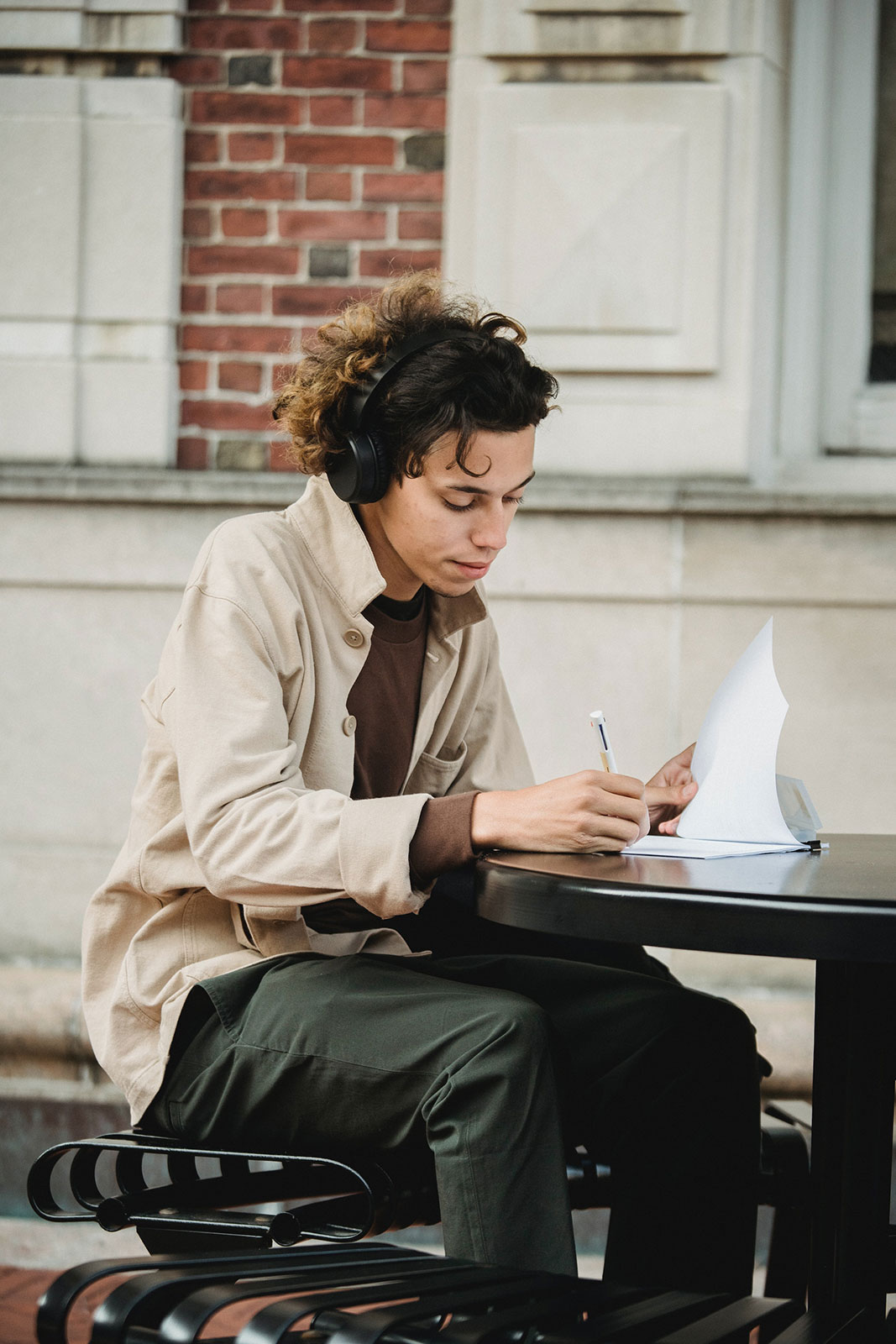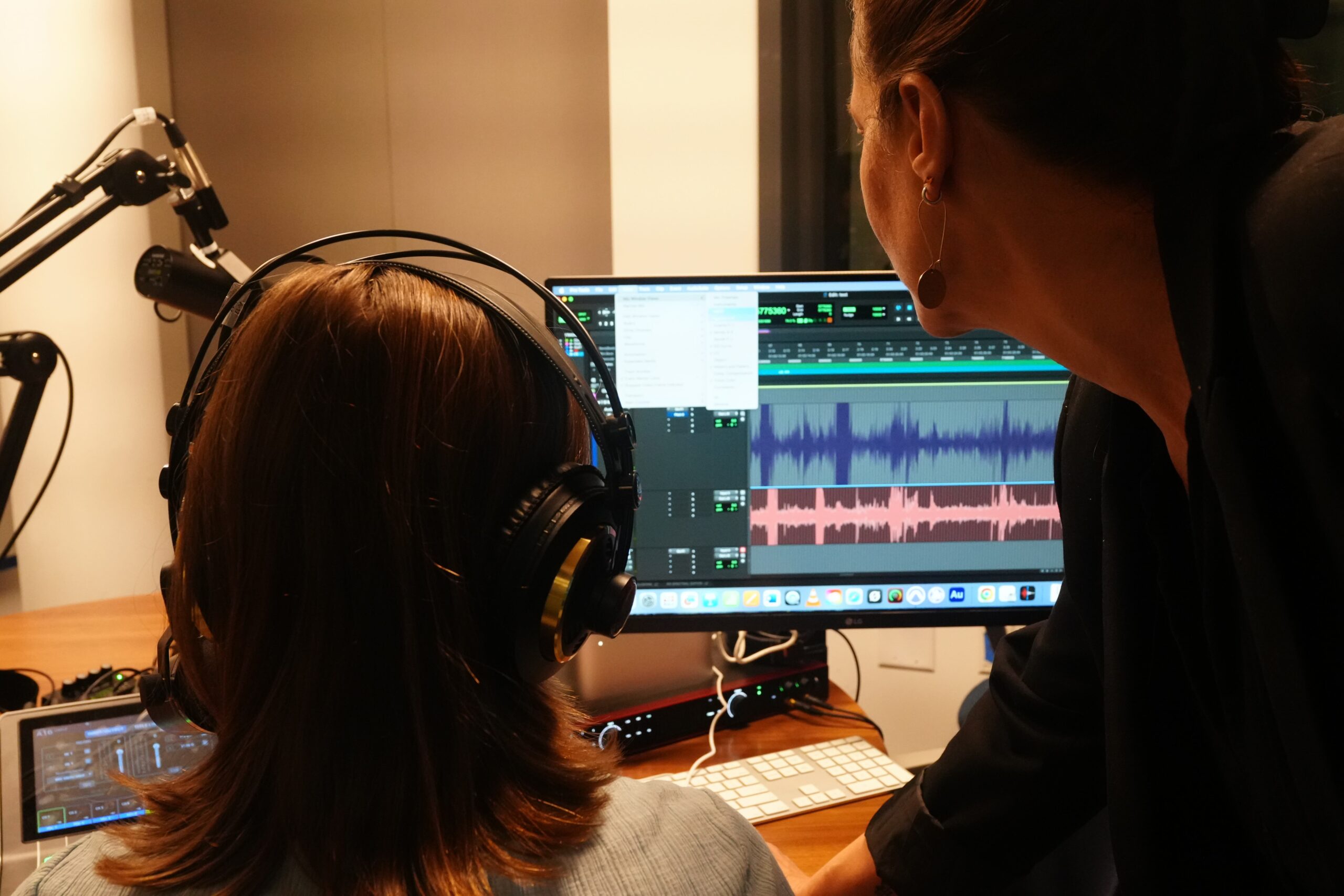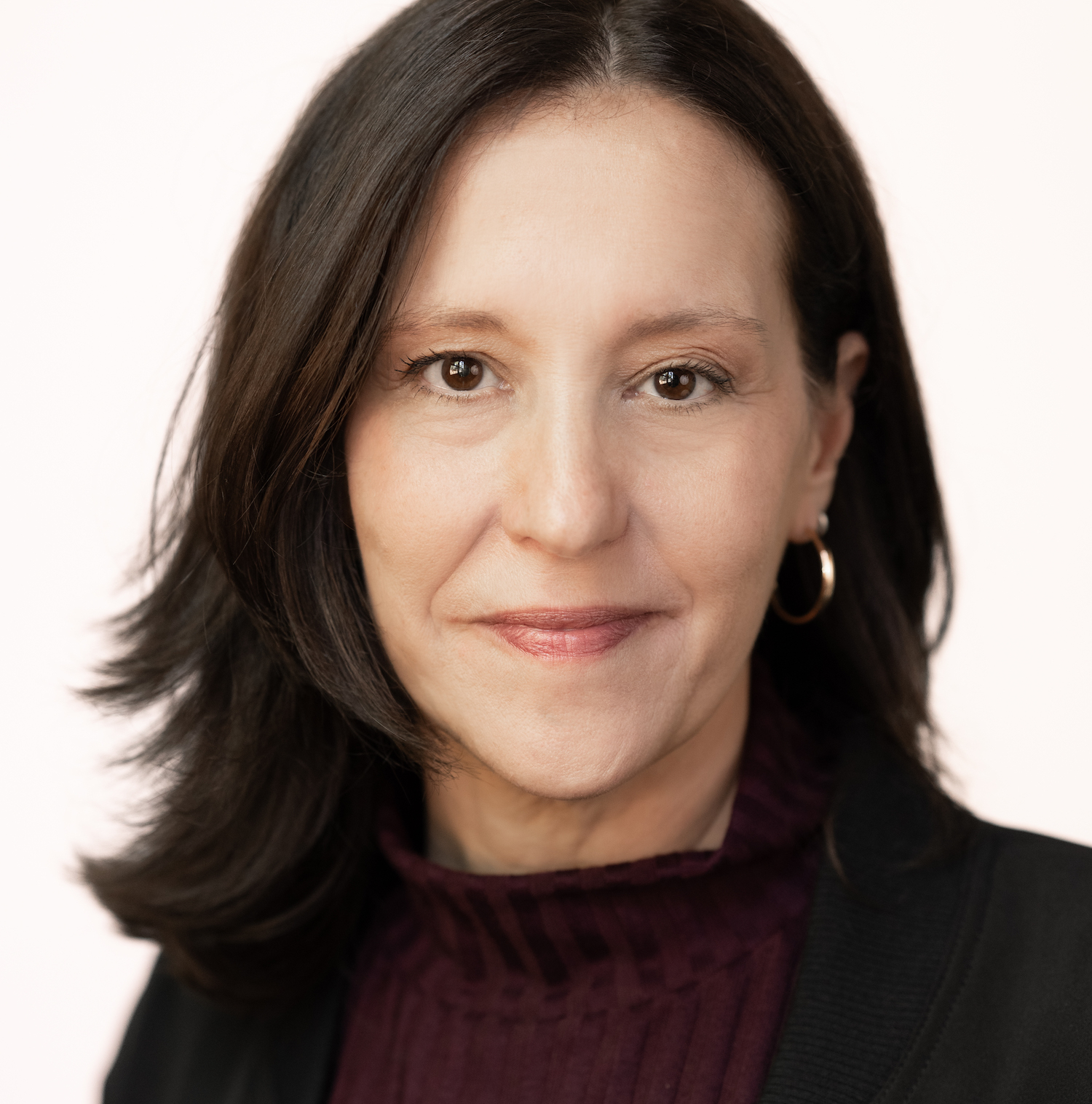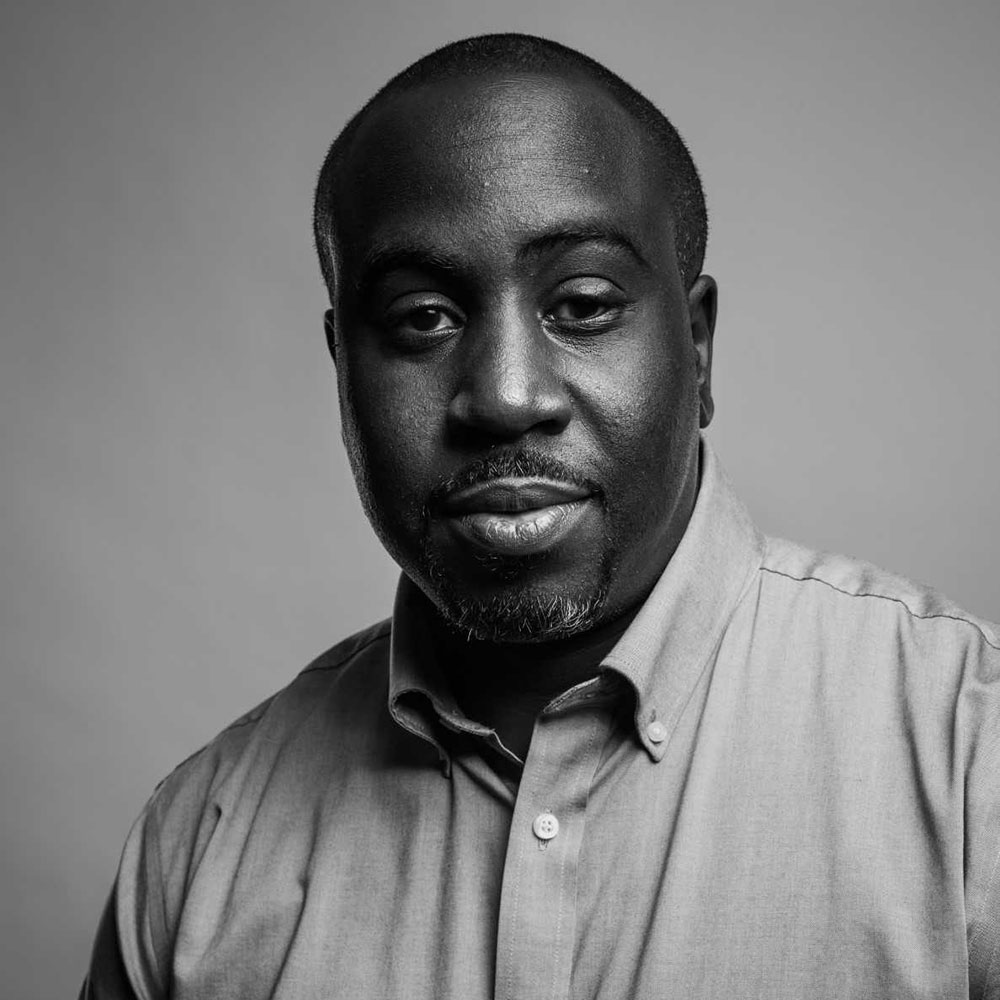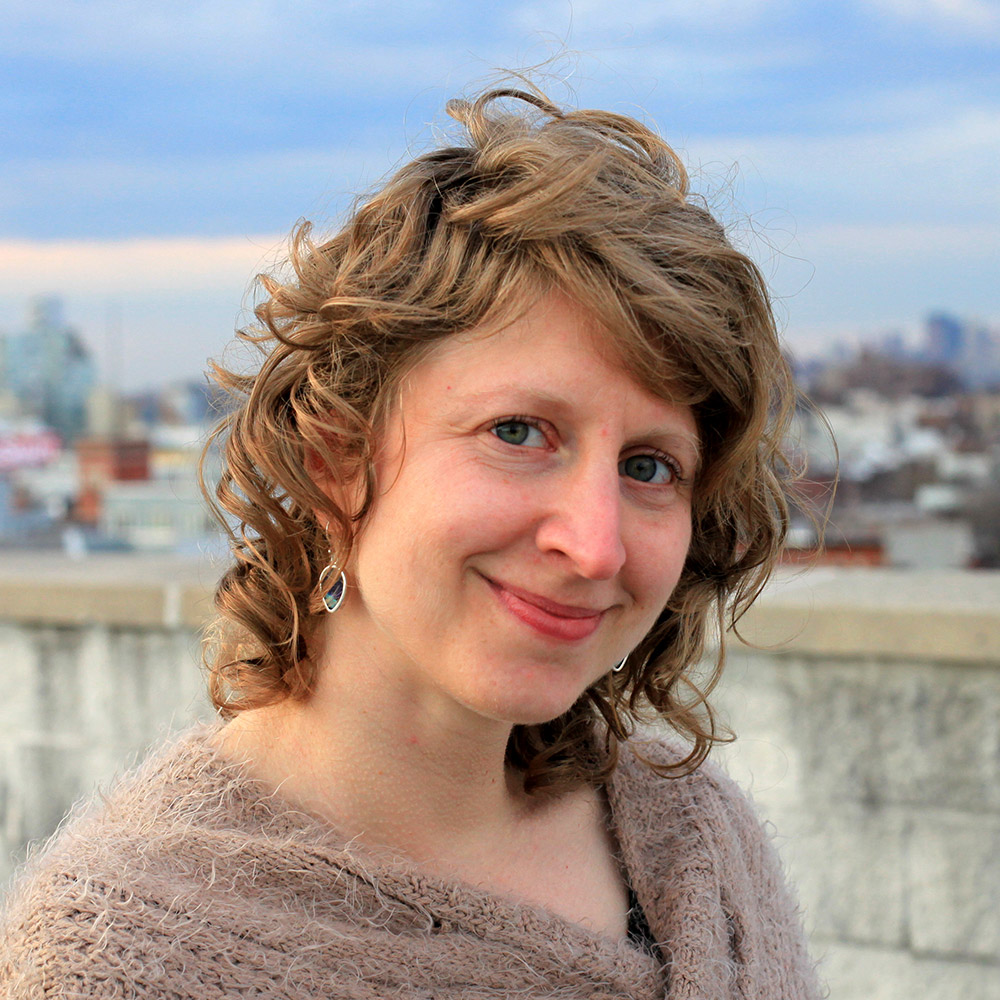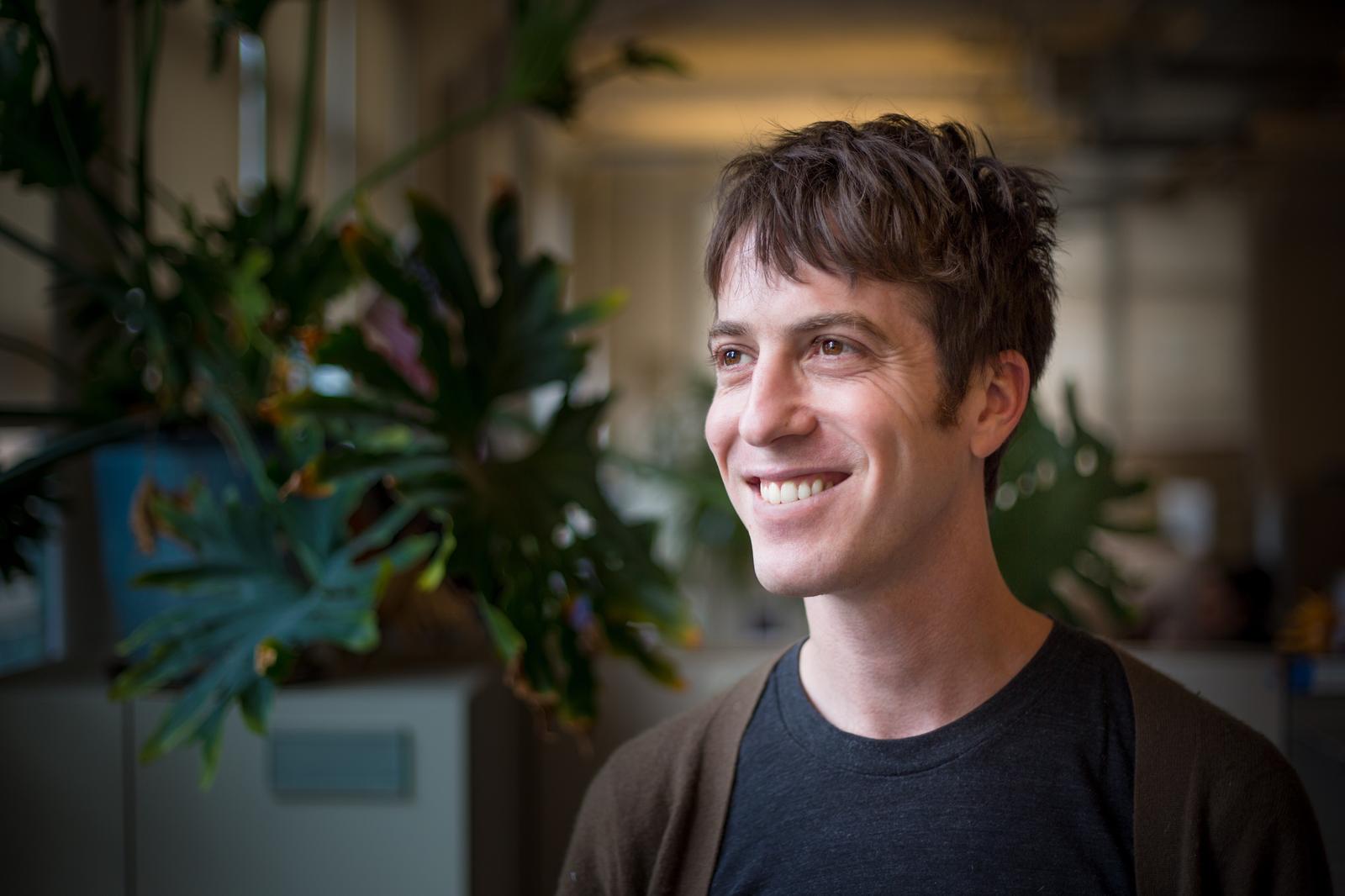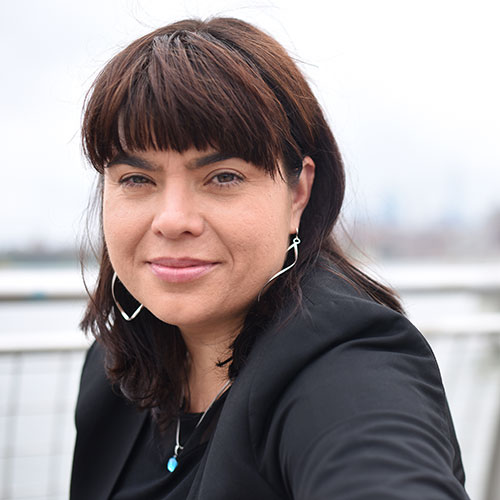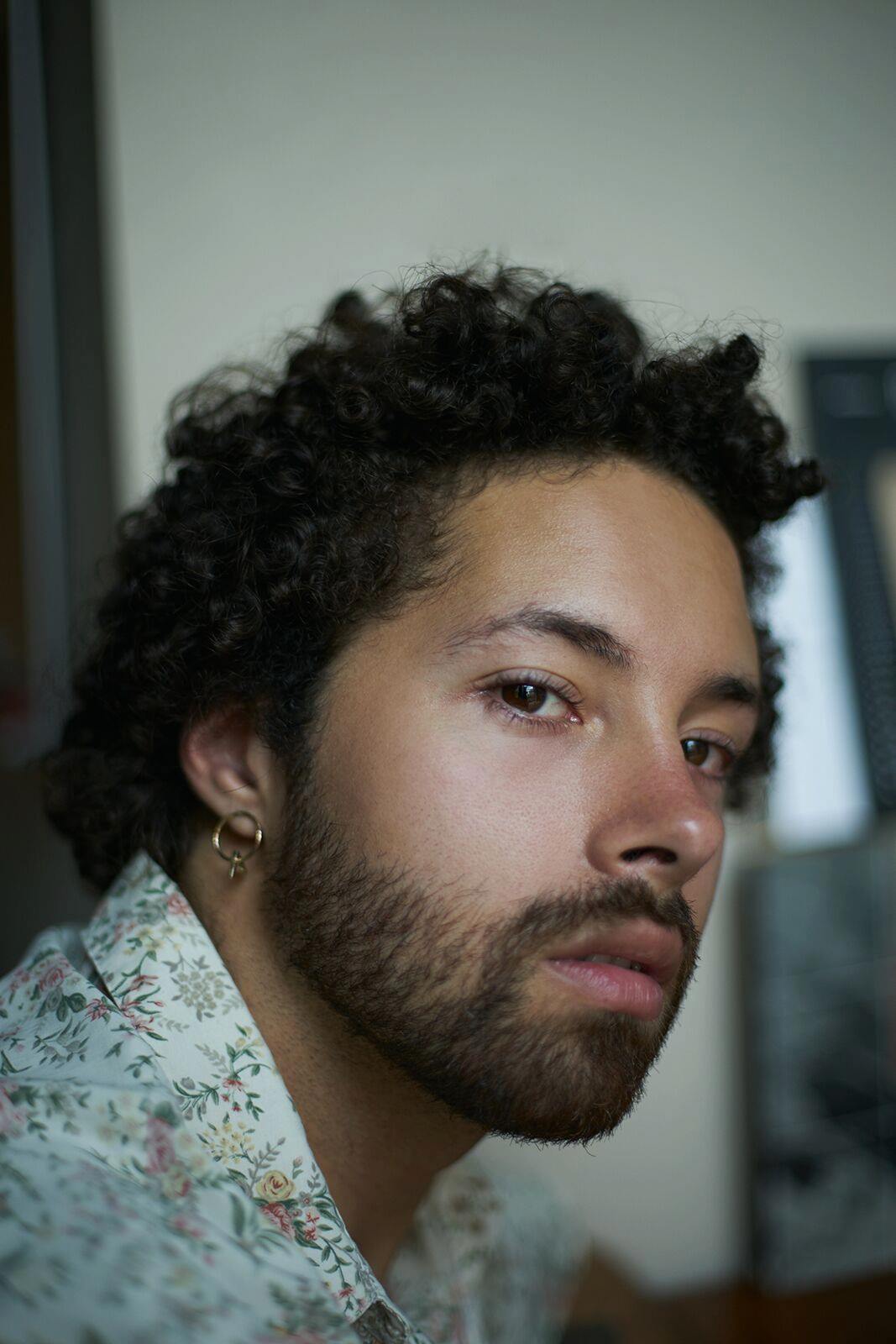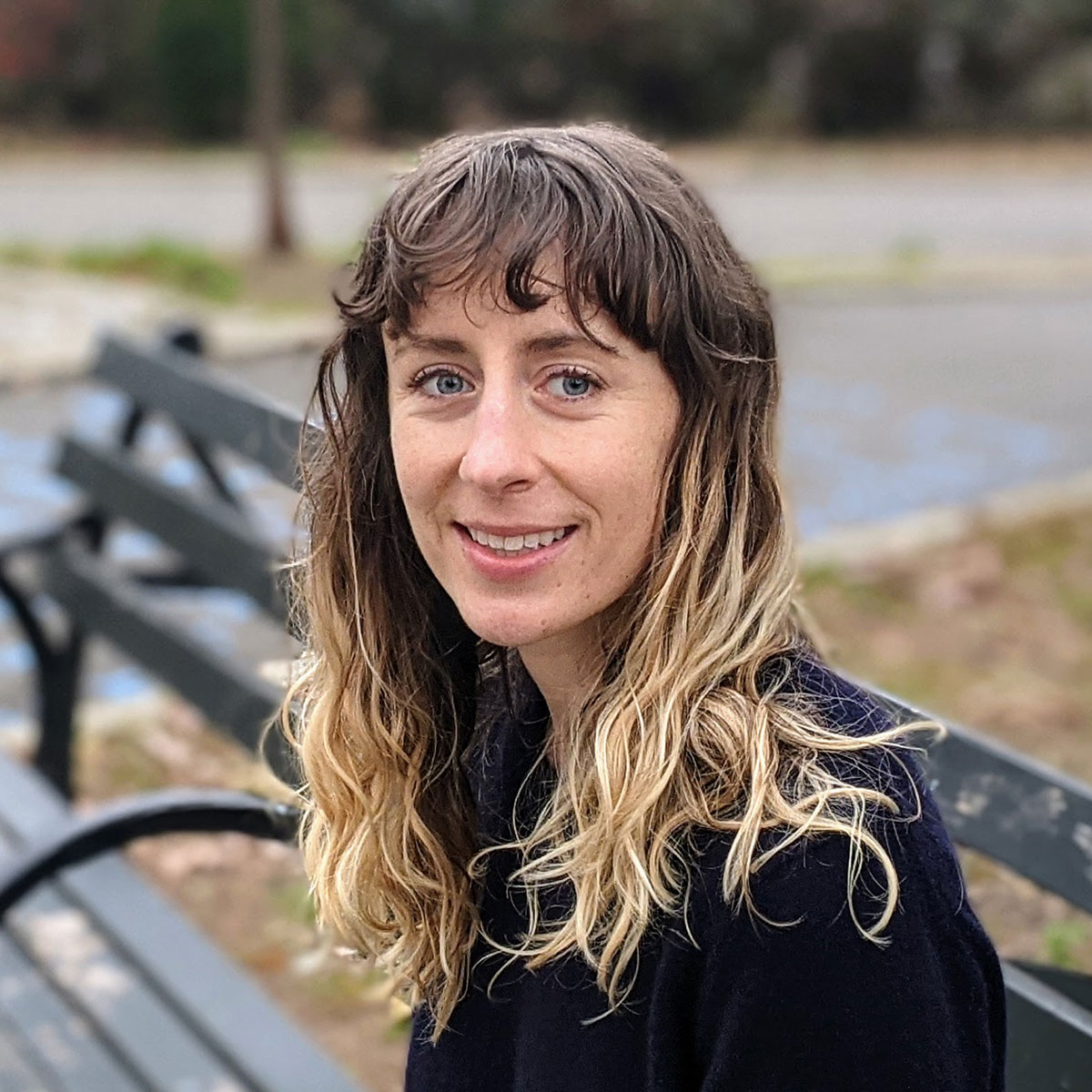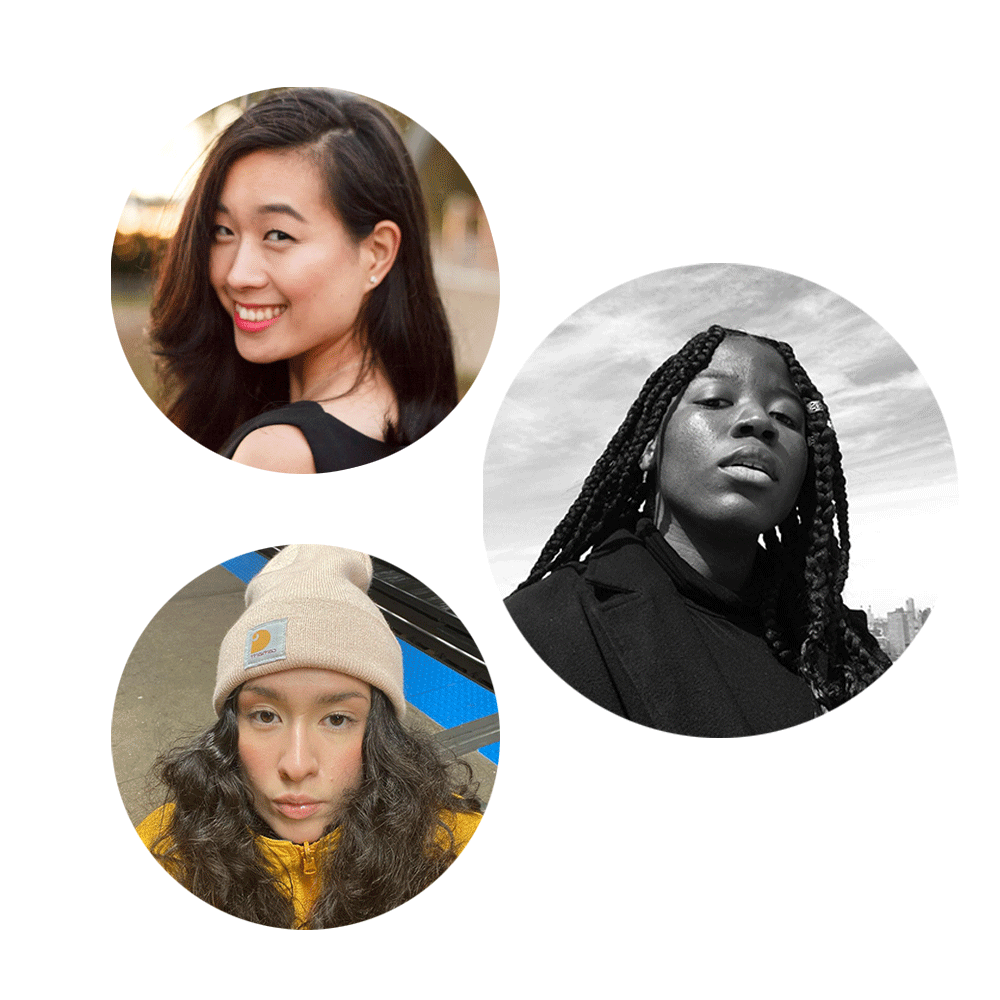Director’s Note to Prospective Students
Our graduate students are audio journalism’s version of the triple-threat: the accomplished reporter, resourceful producer, and sonically creative audio engineer. However, don’t be intimidated, none arrived at NYU with a complete set of all of these abilities.
If you’d like to study this craft, and refine the skills to place you at the forefront of audiojournalism, consider applying to our three semester program. Applications are due January 6, 2026 for the cohort, which will graduate in December 2027. Questions? Email audiojournalism@nyu.edu
I look forward to hearing from you.
~ Ellen Horne, Associate Professor and Director, Podcasting and Audio Reportage
About Audio Reportage
Over the past decade, we’ve witnessed tremendous growth globally in podcast listening. Yet, until now, there have been no audio-first journalism programs specifically designed to train the next generation of audio professionals.
We are seeking students who wish to become fearless and creative practitioners of audio journalism by honing their reporting, editorial, and production skills, to develop their unique voices. Working under the guidance of award-winning producers and respected industry leaders, students will develop deep fluency with research, interviewing and reporting, writing, technical recording, digital editing and sound design. Participants are welcome at every level of journalism and technical experience. Students will be trained in the practical elements that will allow them to realize their own projects and work in a variety of creative jobs. As a result, this program aims to produce an alumni network of visionary audio artists who have expanded the creative frontiers of the medium. Regardless of their choice of subject matter, this medium centers human voices and the spectrum of human experience, and demands that students critically engage questions of identity and power in both the content and journalism process.
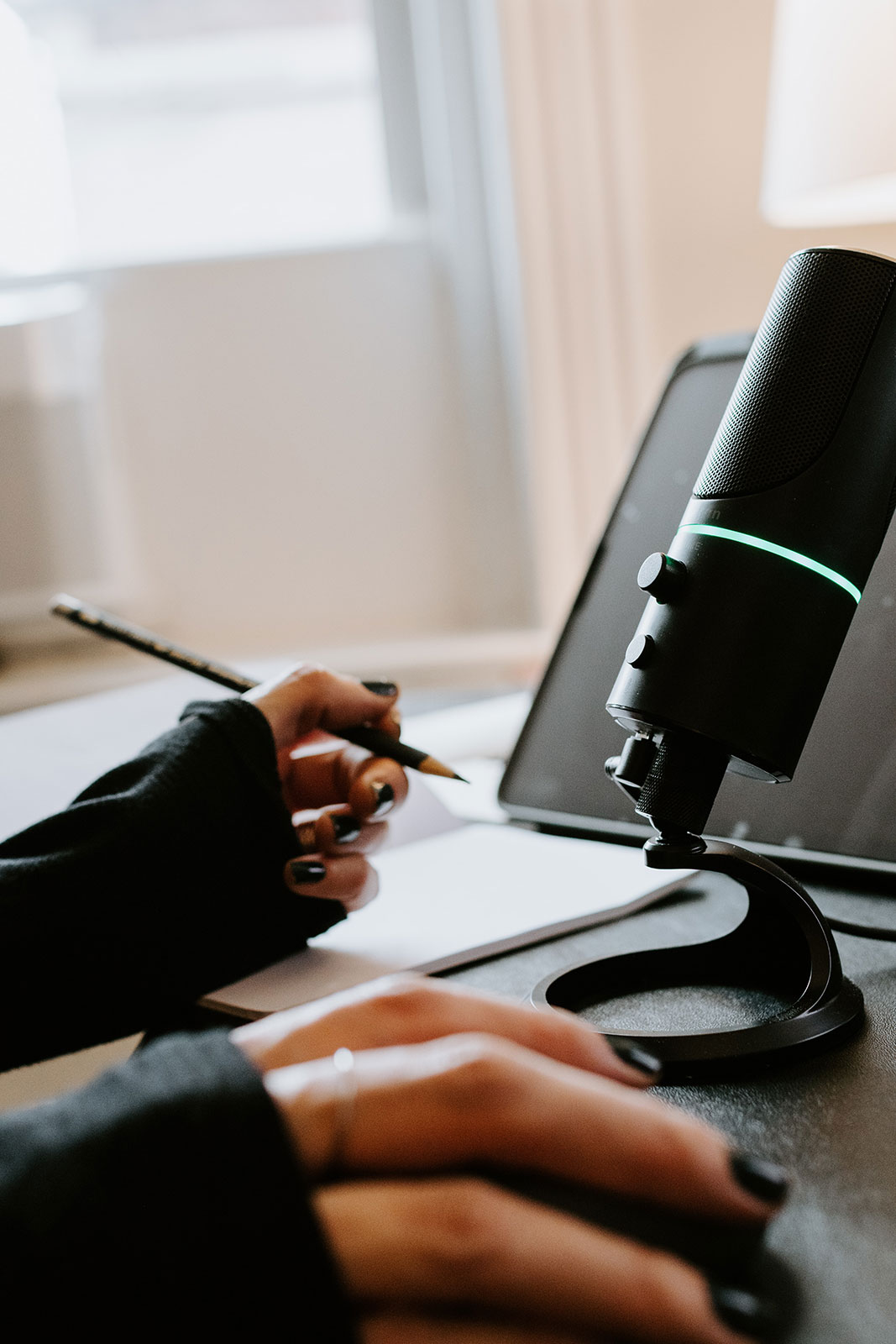
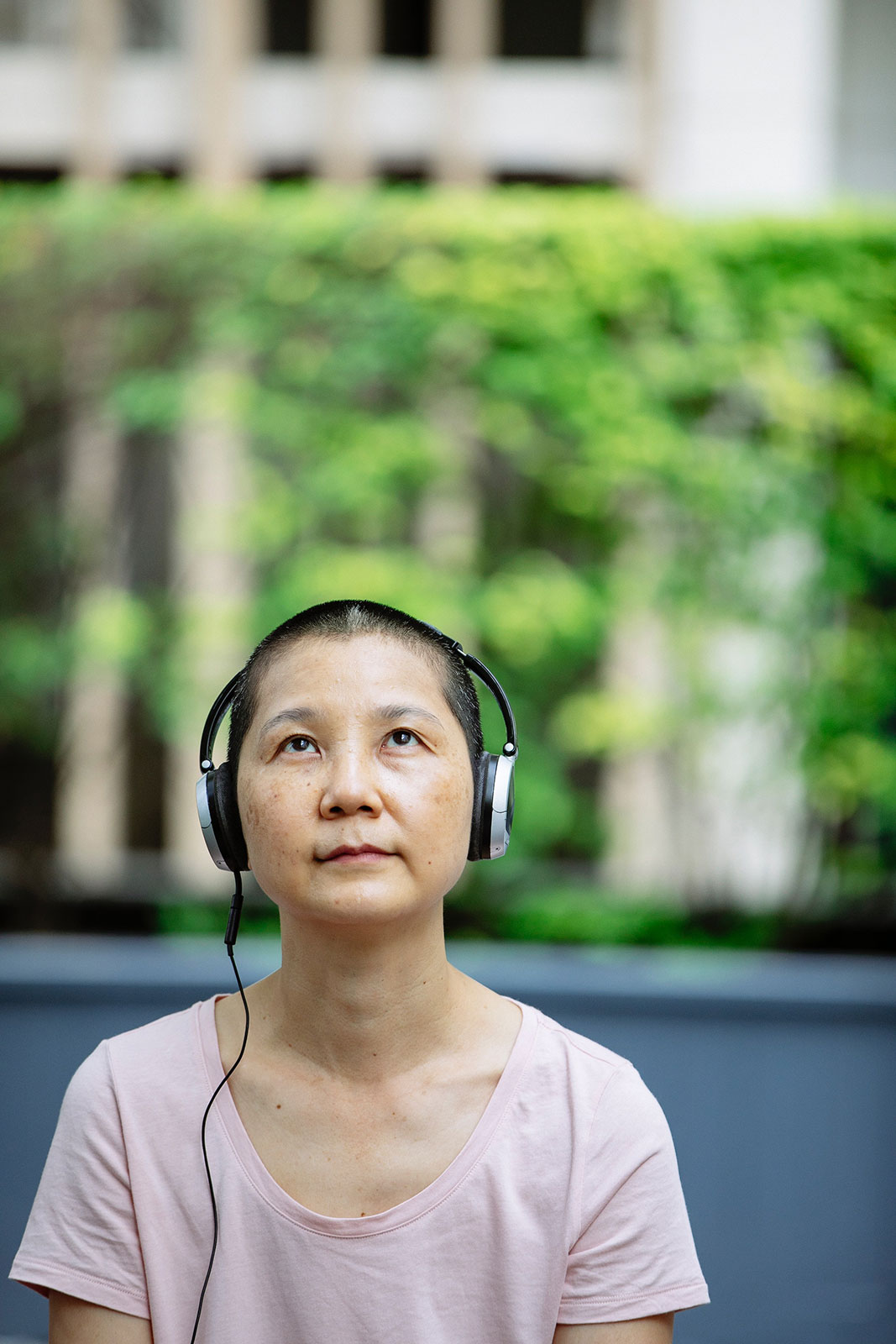
Podcasting has created remarkable opportunities in journalism and media. While audio documentary and radio reporting have a significant history, the accessibility of both new digital audio editing technology and direct distribution to audiences have opened new frontiers for exploration in investigative and nonfiction narrative storytelling. This includes vast audiences for works of deep reporting, beautifully written and performed, featuring creative production and the highest quality documentary recording and editing. All of this has led to an explosion of journalistic and creative organizations, and an environment ripe with job opportunities. NYU Journalism’s new MA audio concentration will prepare students to lead creatively in this expanding journalistic landscape.
Curriculum
The Podcasting & Audio Reportage concentration is a 36-credit program which allows students to acquire deep skills in the audio medium, within NYU’s Journalism offerings. Beyond the requirements of the concentration, which cover the primary skills for the audio journalist, students have 12 elective credits. Students may take advantage of the many strengths of the NYU Journalism Faculty, taking courses across a diverse range of topics from investigative reporting to writing about food.
One of the highlights of the program is an opportunity to meet and learn from luminaries in the audio field. As part of the course of study, students are given ample opportunities for one-on-one interactions with some of today’s most creative and inspiring audio producers. NYU’s Audio Journalism courses frequently feature guest lecturers, such as Nadia Reiman of This American Life, B.A. Parker of NPR’s Code Switch, Yowei Shaw of Invisibilia, Sean Rameswaram of Vox’s Today Explained, Ryan Kailath of WNYC, Kaitlin Prest of The Heart, Nick Van Der Kolk of Love + Radio, Rahsaan Thomas from Ear Hustle and many more.
After completing the first semester of the program, students can take an internship for credit. Internships are not required, but as New York City is a hub for the podcasting industry it is an ideal location for students to make connections and learn from working professionals. The program’s faculty advisors will help students match with internships-for-credits.
The final semester of the program, students will complete a capstone podcast lab course, resulting in portfolio-quality audio work. Students should anticipate working in production teams, and experiencing many roles, from behind-the-scenes to behind-the-microphone, writing and interviewing, editing script and recordings, and working with sound design and the tools of digital sound engineering. Through working in a variety of roles, students gain strengths in collaboration and a keen sense of the mechanics of audio production workflow, key to success in a broadcast environment. This program is designed to give students a comprehensive foundation in the production skills necessary to produce the highest quality podcast work, while at the same time building the expertise necessary to conduct rigorous and ethical journalism.
